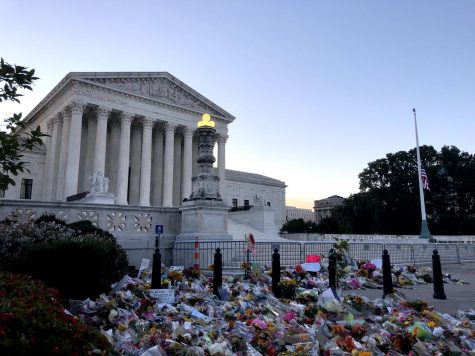How will Amy Coney Barrett’s confirmation affect progressive issues?
November 8, 2020

Amy Coney Barrett was officially sworn in as a justice of the United States Supreme Court on the evening of Monday, October 26. Barrett’s confirmation, which came less than two months after the death of her predecessor, Ruth Bader Ginsburg, pushes the Supreme Court to a 6-3 conservative majority.
Barrett’s first few weeks hold several important cases, including cases on President Trump’s tax returns, election deadlines, and abortion cases. Rulings on the Affordable Care Act (ACA) and LGBTQ+ rights are just a few more of the anticipated cases to come. Some Democrats fear that she will rule in efforts to destroy the protections concerning both subjects.
Barrett is set to hear a case regarding the Affordable Care Act on November 10. The ACA, colloquially known as Obamacare, is a piece of legislation that attempts to provide more widespread health insurance coverage.
Although there is no way of knowing how Barrett will rule, the Republican party has made over 70 attempts at repealing Obamacare. After a 2012 case to repeal the ACA was blocked by SCOTUS, Barrett publicly declared her opposition to the court’s decision.
If Barrett votes that the ACA is unconstitutional, it will leave 20 million Americans without health insurance, millions of which have preexisting conditions. It would widen the healthcare gap between elites and people of color, people with disabilities, and people with lower incomes.
Despite saying that she would “never discriminate on the basis of sexual preference,” Barrett has public connections with multiple groups that do discriminate against LGBTQ+ individuals. Barrett is known to have been a trustee of a private school which effectively barred admission to children of same-sex parents and made it clear that openly gay and lesbian teachers were not welcome in the classroom.
Although she did not directly answer a question on it during her Senate confirmation hearings, Barrett is assumed to stand against abortion rights. She has previously joined groups and signed public statements that oppose abortion.
Mississippi’s 15-week abortion ban signed into law in 2018 may be the first case pertaining to Barrett’s known opposition to abortion rights. A federal judge struck down the law in November of 2018, and now after an appeal it may land in front of the Supreme Court. The law does not exempt incidents of rape or incest, but does allow for medical emergencies and mothers of fetuses with severe abnormalities to get an abortion.
Justice Amy Coney Barrett has the potential to change rulings on important issues to progressives such as Roe v. Wade, the constitutionality of the ACA, Obergefell v. Hodges and so much more.

















